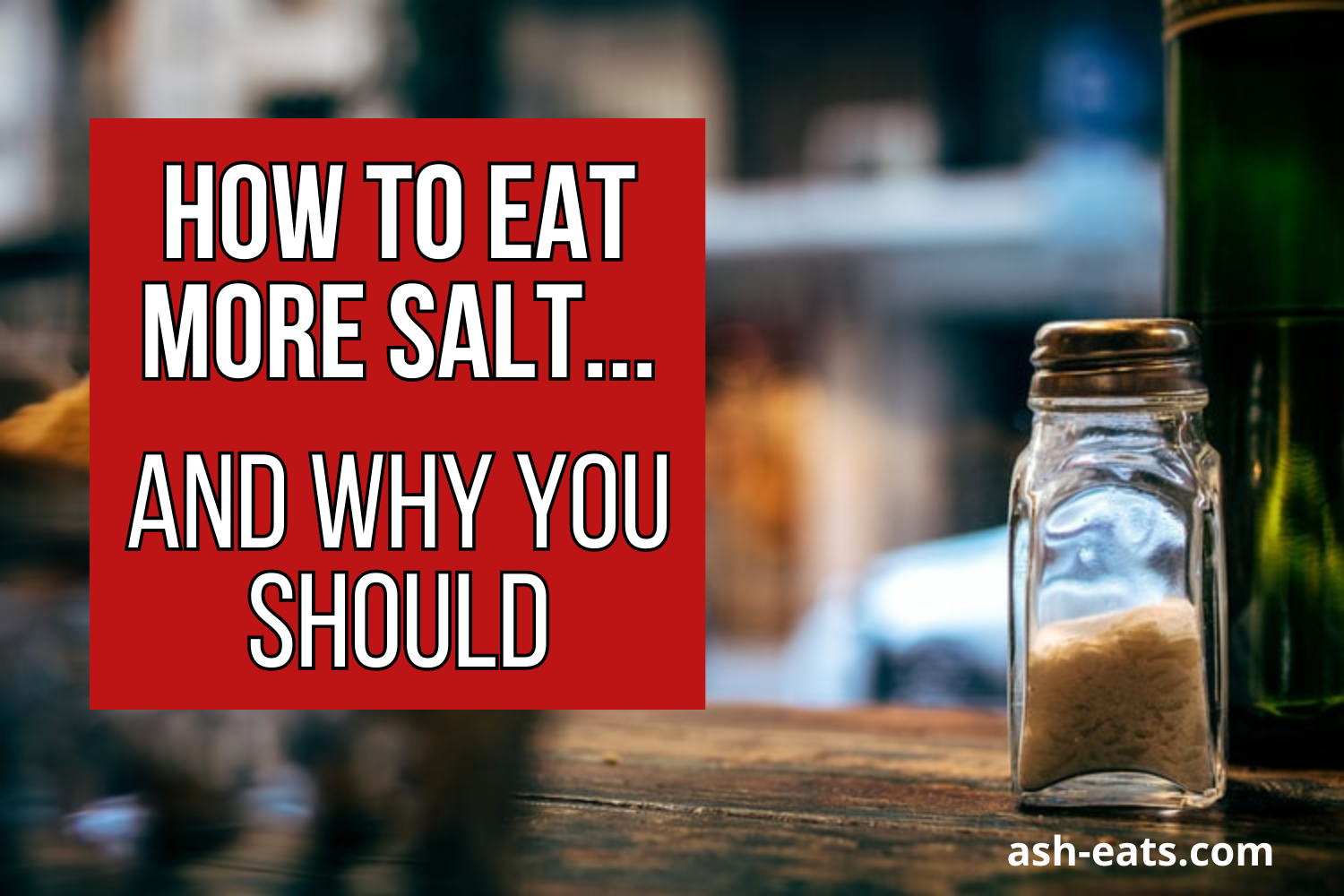
Published on September 7, 2021 by Ashley Rothstein
You’re here because you’re wondering how to eat more salt.
Out of everything I’ve experimented with to improve my health, increasing my salt intake has been hands down one of the best things I have ever done for myself.
Consuming more salt helped me go from feeling horrible (read more about ‘horrible’ here) to feeling way better. And dare I even say it…to feeling great.
I eat a ton of salt. TONS. And then some more.
When I first learned about low carb/keto/carnivore/animal-based eating, I heard people talk about salt. I was never afraid of salt, but I never realized how much salt my body actually needed to function optimally.
I get lots of messages from people who are looking for health recommendations. When I recommend they increase their salt intake, the response I usually get is “oh, I already eat a lot of salt.” But you’d be surprised how much salt you actually need.
For me, it goes beyond salting my food.
The turning point for me was when I started heavily salting my water and taking licks of salt throughout the day.
Think about it…
How much sodium is found in processed foods? A lot.
So what happens when you completely eliminate processed foods? Like you would salt a steak, you need to salt…yourself.
In this post, we’ll cover:
- if too much salt is bad for you
- salt sensitivity
- how to determine how much salt you need
- where the mainstream “low salt” narrative came from
- how to eat more salt
- how to choose salt
- the connection between salt and mental health
Is too much salt bad for you?
When I first started to feel the benefits of upping my salt, I was skeptical. The mainstream narrative “salt is bad and too much will give you a heart attack and kill you” made me cut back.
I did this many times (uncertain of myself, I guess) and every time I tried to cut back, I ended up feeling horrible. Low energy, unstable mood, and even regular panic attacks (more on that later).
My body always led me back to increasing salt to feel good again.
I actually lost my sense of thirst entirely for over a year…until I started consuming large amounts of salt in my water. And ever since, it’s been back and stuck around.
I have considered if my body requiring this much salt to feel good is a malfunction (or deficiency elsewhere) of some sort, but I’m not so sure…
Low salt diets are associated with insomnia, poor sleep quality, low stomach acid, poor digestion, sugar cravings, addiction, hormonal imbalances, mental health disorders, muscle spasms, dizziness, poor exercise performance, and other things.
And without enough salt, our adrenal glands can actually atrophy and burn out!
What about “salt sensitivity”?
You may have heard the term “salt sensitivity.” Salt-sensitive people experience blood pressure changes correlated with salt intake.
Salt sensitivity is extremely rare. In the cases that do exist, it is usually due to one of four things:
- insulin resistance
- low magnesium intake
- low potassium intake
- having a high dietary acid load
If you fix these things (assuming you don’t have a rare genetic issue), the salt sensitivity will reverse.
There was even a study done on non-salt-sensitive people where they were given 100 grams (that’s about 50 tsp of sea salt!) of salt in one sitting. They experienced no increase in blood pressure. Their bodies absorbed the salt they needed and just peed out what they didn’t need.
What I conclude from this: if you’re healthy, it’s basically impossible to eat too much salt.
Want to learn more about oral magnesium vs. transdermal magnesium, the pros and cons of both, and how to figure out which method is for you?
Read this post here to learn more.
Where did the “low salt” mainstream narrative come from?
For a variety of perspectives on why we’re all led to believe salt is bad, check out this, this, and this.
As for where the narrative came from, I’m not entirely sure.
From what I can tell, it seems that around 50 years ago, researchers attempted to link high salt to high blood pressure, and the narrative just took off from there.
But according to Robert P. Heany in The Sodium Story:
The 40-year era of attempting to reduce everyone’s salt intake came to an end on May 14, 2013, when the IOM issued new guidelines for American salt intakes. Recent studies had provided compelling evidence that salt intake in the range recommended by the IOM in 2005 could actually increase heart-related illness and death. So, in a dramatic reversal, the 2013 recommendation acknowledged that there was no evidence that reducing intake below 2300 mg per day was beneficial.
The reasons behind this shift can be briefly summarized as follows: The chemical messengers (hormones) that humans produce to throttle back salt losses from the body are compounds called renin, angiotensin, and aldosterone. These hormones begin to be produced in increased amounts when sodium intakes drop below about 3200 mg/d. The lower the intake gets, the more of these protective compounds is produced. These are what are called in physiology “rescue” mechanisms, which means they function to tide an organism over a temporary problem (as from sudden blood loss or dehydration), until the animal (or human) can access the salt and water it needs to restore central blood volume. In that sense, they’re just like adrenaline, which is also produced in times of stress (though of a different sort). They’re both emergency tools, automatically deployed by the body in times of need.
The principal problem with the 2005 IOM recommendation (under 1500 mg sodium per day) was that, if followed, it would create a situation in which these rescue mechanisms were being constantly deployed.
So if this research is alive and out there, why do many of us still have a fear of salt?
Like anything else, decades of conditioning (and generational conditioning) will do that to you.
The purpose of this post is to encourage you to experiment with higher salt, and through experiencing your body’s wisdom, maybe you’ll learn firsthand that there is another way.
How much salt do you need?
Well, it depends on what you have going on.
Adrenal fatigue
Requiring lots of salt can be related to adrenal fatigue/high stress. I find that when I’m stressed, I need more salt to bring me back to baseline. When I double down on my stress management practices, I require less salt.
Potassium-rich foods
If you are eating/drinking high amounts of salt, food high in potassium – like avocados, bananas, dates, sweet potatoes, squash, and dried fruits – shouldn’t be much of a problem.
But if you eat high potassium foods without increasing your salt, your body’s electrolyte ratio can get out of whack. And when this happens, you may feel pretty crappy and you may hold on to more water.
The solution? Less potassium-rich foods…or more salt.
High sugar (fruit)
I don’t know the science behind why, but I intuitively discovered that when I eat a bit too much fruit and get “fruit stomach” as I call it (bloated and generally feeling icky), taking licks of salt and/or drinking salt water rapidly resolves the problem.
Low carb diets
Electrolyte retention is dependent on dietary carbohydrate consumption, so if you eat low carb, you probably require more salt. Experts in the field have recommended upwards of 5-10g+ salt per day if you’re low carb.
Environmental factors
The sun, humidity, and sweating also play a role in maintaining your sodium levels. I live in Austin, TX and it’s very hot and humid here. I’m a huge sweater, so when I’m out in the sun (sometimes doing strenuous hikes), I lose a lot of salt so I need to eat/drink a lot to compensate.
So, in a nutshell, when it comes to how much salt you need, it depends. But a good rule of thumb is to listen to your body.
Your body will tell you if it needs/likes more salt. Pay attention to how your palate reacts to salt.
My mouth/body has an aversion to unsalted water or food. If I try to drink unsalted water or eat lightly salted food, it doesn’t taste good.
When I add more salt, my body accepts the food or water with way less resistance.
You know when you sip something and go “ahhh” or eat something and go “mmmm”? Your body is communicating with you. I often go “ahhhh” after drinking salt water.
And sometimes I add a tsp of salt to 32oz of water, and when I take a sip, my body tells me I need even more.
It’s a language you learn over time.
Want to learn more about my full real food supplement routine (and why you may want to consider ditching your manufactured supplements)?
Read this post here to learn more.
How to eat more salt
To maintain my salt intake, I:
- add 1 tsp of salt to every 32oz of water I drink, 100% of the time
- keep a pile of salt on my desk and take licks of it throughout the day
- liberally salt my food
Salt is my life force. If I…
- eat a little too much sugar (fruit)
- feel tired, brain fog, or low energy
- am sad or blue
- feel nauseous
- can’t sleep
- feel a mild bloat coming on
…I up my salt.
For pretty much any mild ailment/deviation away from my baseline, I up my salt. And it works nearly 100% of the time.
If you deal with anything that feels off, you may benefit from increasing your salt intake.
How to do it…
If you don’t already liberally salt your food, start there.
But if you already liberally salt your food, try this…
- Start your day with 1 tsp of salt in 32 oz of water immediately after waking. Don’t chug. Sip instead.
- Keep a pile of salt on your desk or with you. When you feel moody, low in energy, or just off, take a lick of salt.
- Salt the rest of the water you drink throughout the day. Use the amount that makes your body go “ahhh.”
Note: When it comes to increasing salt, you may need to go slowly. If you go too fast, you may feel nauseous or create a laxative effect. And don’t chug salted water. Sip on it throughout the day.
Feeling bloated? Read about the 10 things I did to beat the bloat for good. Hint: one of the most important things was increasing my salt intake!
Read this post here to learn more.
How to choose the right salt
For starters, ditch the table salt.
Natural salt is superheated to 1200 degrees Fahrenheit to create table salt, and in the process, its minerals and other beneficial compounds are destroyed. The salt is then bleached and fortified with iodine. Additives are sometimes added to slow moisture absorption.
In the end, it ends up devoid of nutrients.
Researchers and health experts claim that table salt can destroy your body, whereas natural, unrefined salts can heal your body.
What are natural, unrefined salts?
Common examples of natural, unrefined salts are sea salt, pink Himalayan salt, and grey salt (i.e. Celtic).
Other natural salts are fleur de sel, black salt, red salt, persian blue salt, and smoked salt.
How to choose
It comes down to preference as each type of natural salt has its own unique taste and traits.
Sea salt comes from the ocean and is filled with nutrients. Pollution can be a concern given the declining purity of the oceans.
Pink salts come from the ancient seabeds in the Himalayan mountains. Its pink color comes from its high iron content and it also contains 84 other trace minerals.
Grey salt is usually called Celtic sea salt. It’s hand-raked in France where the earth’s clay and sand create moist, mineral-rich crystals. This salt can be a bit more expensive.
Fleur de sel, black salt, red salt, persian blue salt, and smoked salt also have their own unique traits.
I recommend trying out each type of salt for yourself to see how your tastebuds and your body respond.
My favorites
My favorite types of salt are Redmond Real Salt (I use this to salt my water and to cook – it’s the main salt I use), Celtic Sea Salt (I use this occasionally for variety), pink Himalayan salt (I also use this occasionally for variety), and if you’re looking for salt with a balanced ratio of magnesium and potassium too, Redmond RELYTE and LMNT are great sources of pre-packaged single-serving electrolytes.
Redmond Real Salt
Celtic Sea Salt
LMNT
Here’s a little hack to purchase salt efficiently (we recently started doing this and I’m really happy we did)…
Purchase one salt shaker from Redmond Real Salt, one (or a few) 10-lb buckets (also from Redmond Real Salt), and use the bucket supply to refill the salt shaker. Not only is it cheaper to buy in bulk, but you can use my code (ASHLEYR) and save an additional 15% off your order. Redmond offers free shipping for orders over $30 too, so if you buy at least one bucket, you’ll get free shipping.
UPDATE: Due to shipping issues, Redmond no longer offers 10-lb bulk buckets (sadly). However, while I was mourning the loss of the 10-lb buckets, I came across these 25-lb bulk bags on their website! They’re much cheaper per unit compared to the 10-lb buckets, and while I loved the buckets, I’ll always go for the better deal.
If the 25-lb bulk bags is too much salt for you, Redmond replaced the 10-lb buckets with 10-lb bags!
Note: They offer the 10-lb bags in fine and kosher and the 25-lb bags in fine, coarse, kosher, and powdered.
The salt/mental health connection
I used to get demonic panic attacks where crippling symptoms (sensation of a melting chest and limbs, pounding heart, breathlessness, unable to mentally orient to reality, paralysis, shortness of breath, head tingling, loss of vision) would swallow my body and make me feel like it was near death.
But now…
I don’t have them anymore…at all.
Panic attacks were a horrible (arguably the most horrible) symptom I endured for years. I used to have one at least once per week. Sometimes, one every few days.
And now, I have been panic attack-free for nearly two years.
I noticed a direct correlation between a decrease in my panic attacks (and their eventual resolve) and radically increasing my salt…
And I am continually dumbfounded and awe-struck by this.
This is why I put such a huge emphasis on salt. It is not the end-all/cure-all, but this fact alone, for me at least, is too significant to ignore.
If you deal with any sort of mental imbalance whether mild like general anxiety or severe like life-altering panic attacks, try upping your salt.
Final thoughts
Pretty much any time I feel any variation of crappy, I take a lick of salt and it almost always fixes whatever I have going on.
Both my husband and I consume upwards of 6-10g+ of salt per day. We love it and seek it.
Maybe salt intake is something you haven’t considered, but something that could be transformational for you too.
It took me about two years to understand how important salt was for my body, and to undo the “salt is bad” mainstream narrative. You don’t know what you don’t know until you experience it for yourself.
Best of luck on your salt journey. If you experience the magic of salt or grow to love salt like I do, drop me a line. I’d love to hear about it! Send me an email (asheatsgood@gmail.com), reach out on IG, or comment below. 🙂

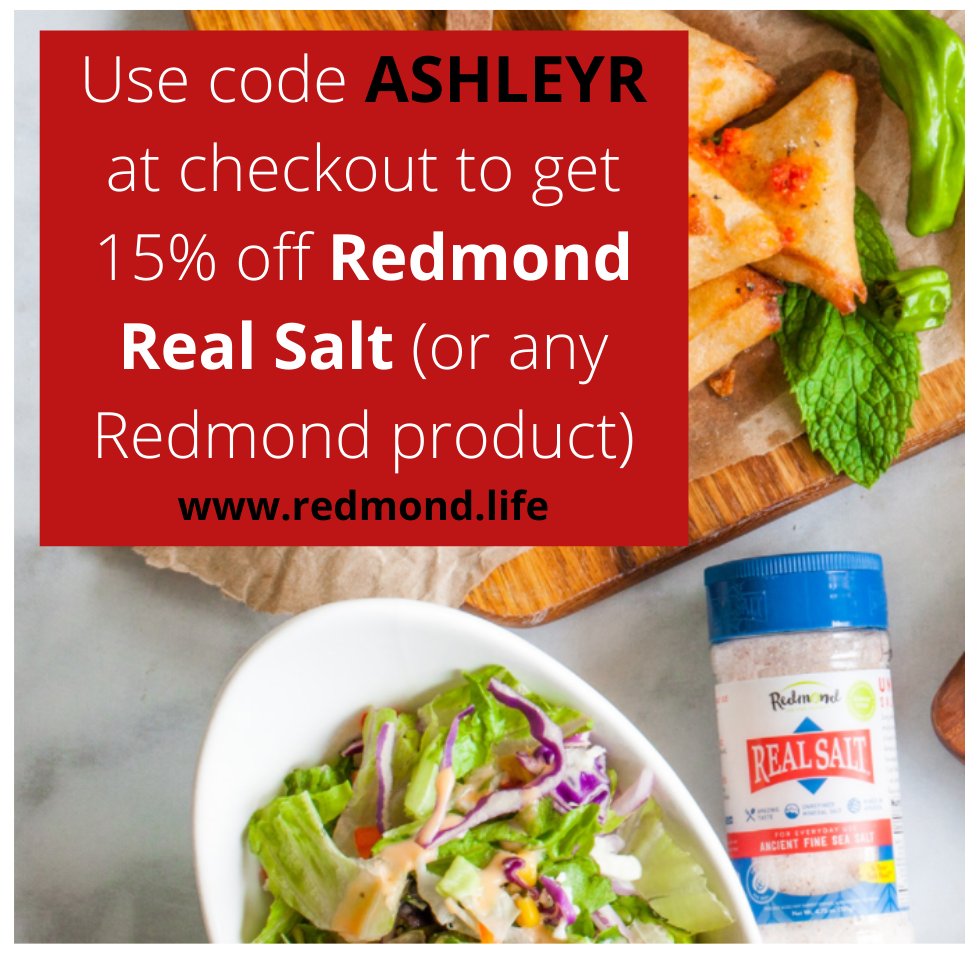
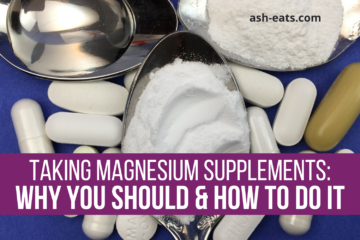

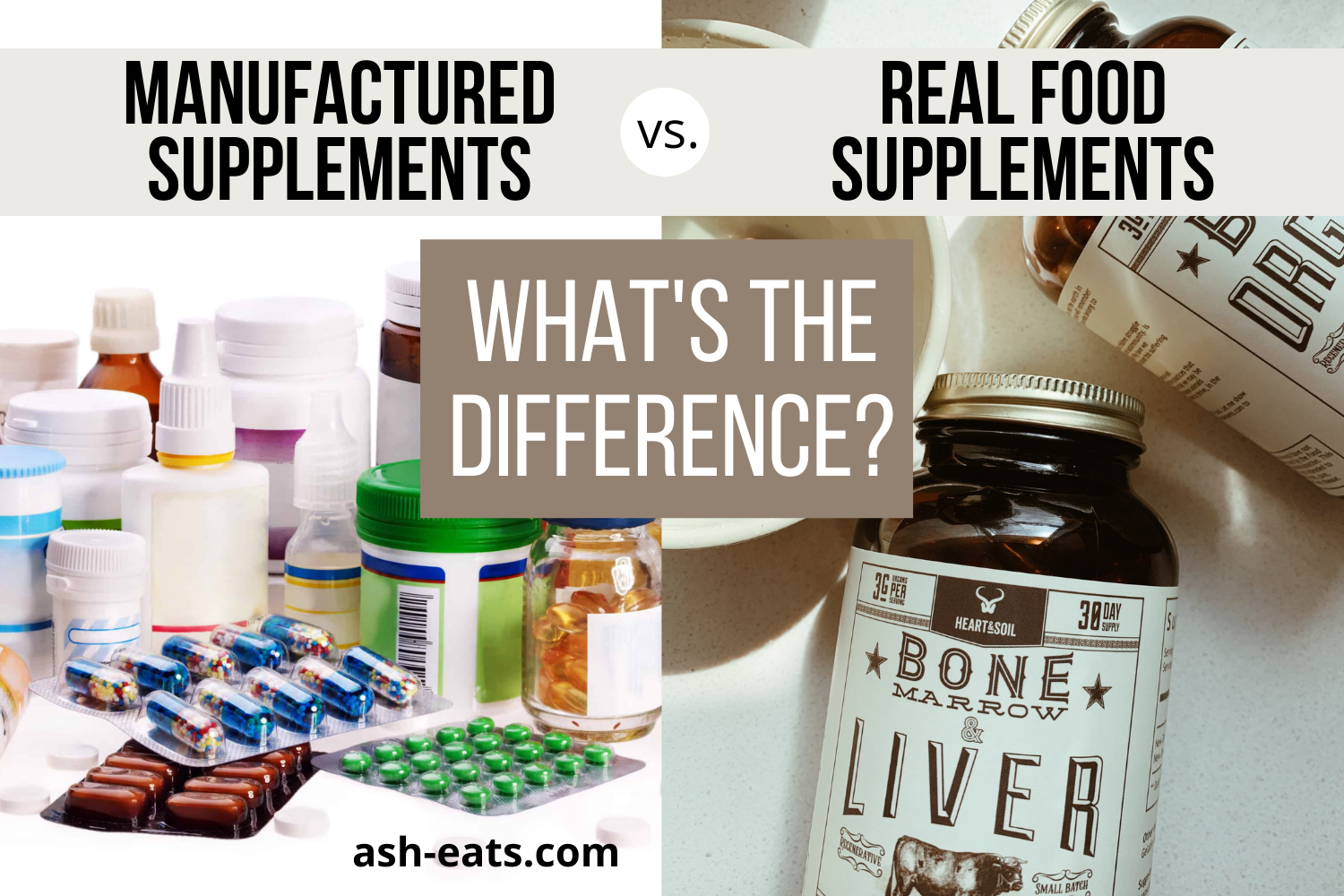

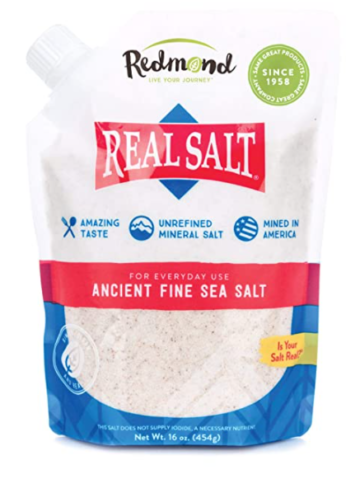
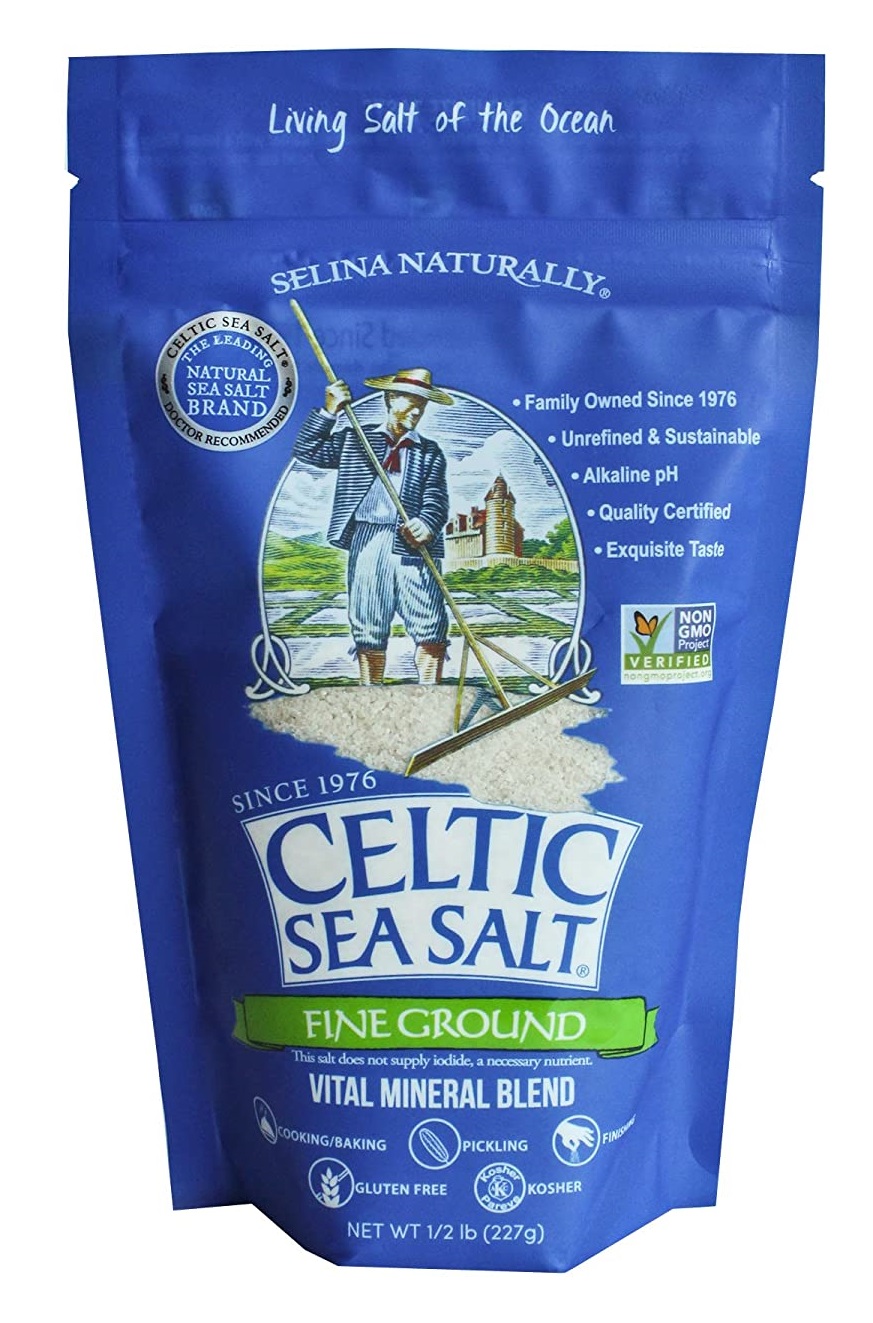
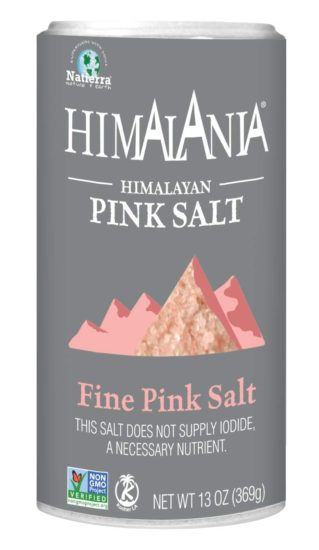
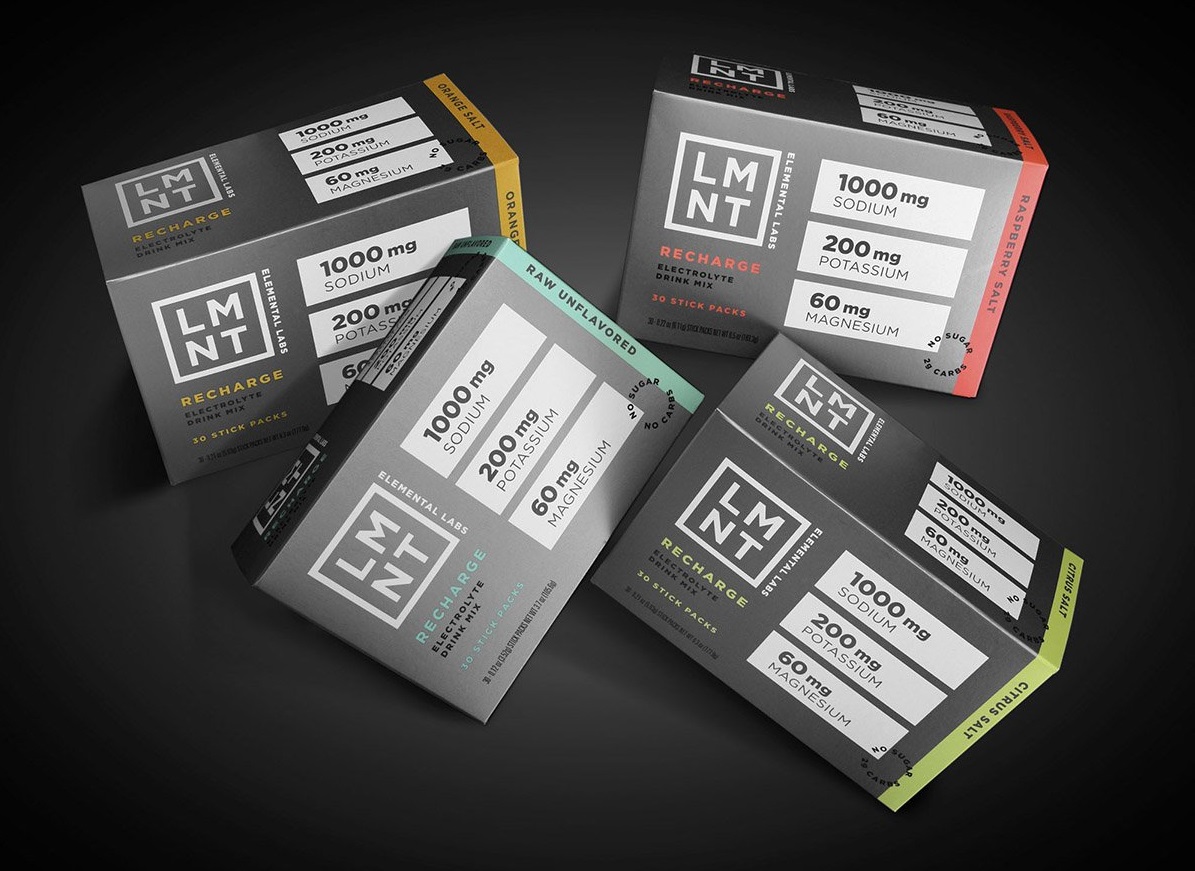
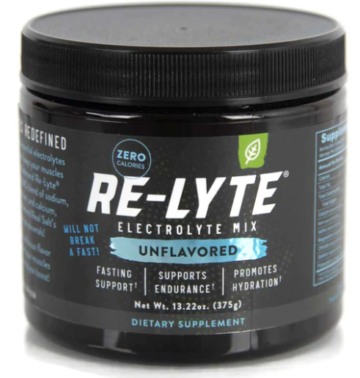
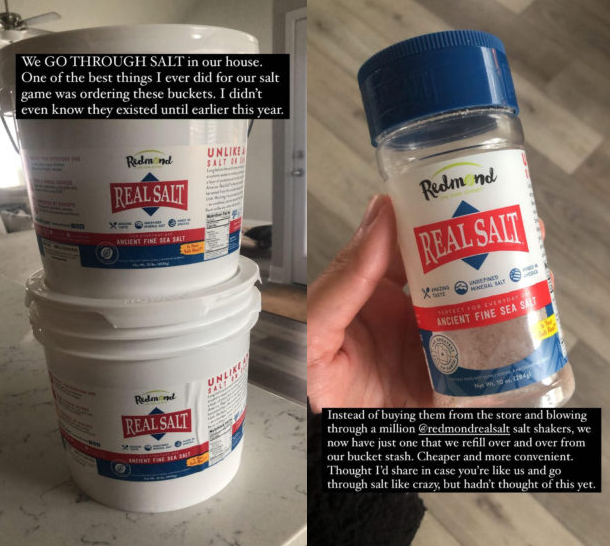



You are so amazing! What a great article! I had been upping my salt because I know it helps me to feel better. But I’m still not having as much as I should, especially with my amount of activity outside in 100-degree weather. I’m for sure upping it MORE today!
This is such a great article! I have always been a salt lover, salting all my food and taking licks throughout the day, and my boyfriend has always insisted that it’s not healthy to eat so much salt. Now I’ve got some info to back it up! 🙂 I did want to ask, what do you think about Kosher flake salt? This is my favorite kind but I didn’t see it mentioned here. Thank you!
Author
Ha, my family thought I was crazy until they started drinking salt water themselves, and now they claim they can’t live without it. 🙂 I have never heard about Kosher flake salt, but I say listen to your body. If you love it and your body does well with it, no need to switch or stop. Have you ever tried Redmond Real Salt? They’re my favorite and they have Kosher salt! Not sure if you’ve seen my Salt Purchasing Hack blog post (http://ash-eats.com/salt-purchasing-efficiency-cost-savings-hack/). Check it out if interested. Redmond has Kosher salt buckets too!